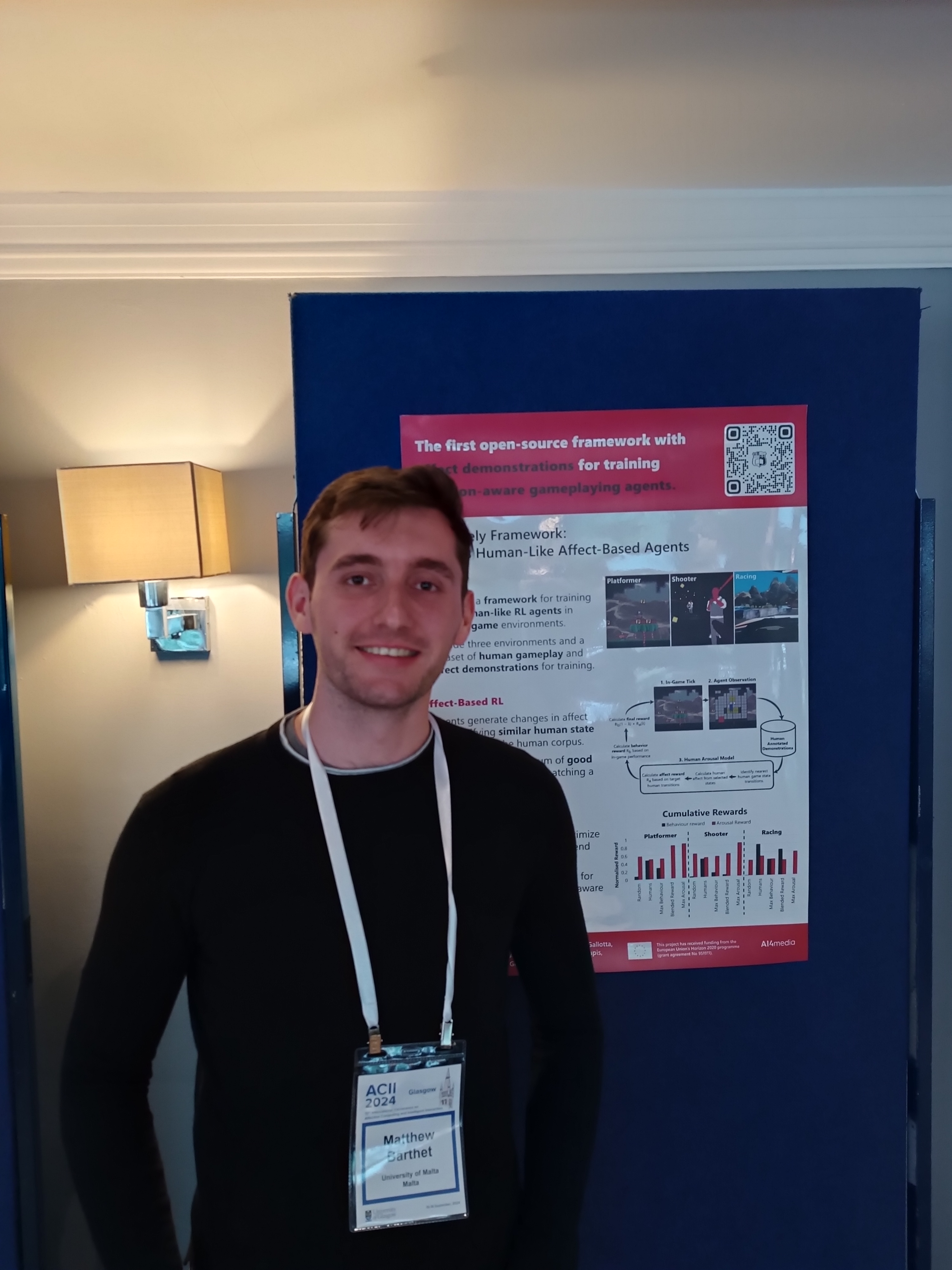
Research in Player Modelling presented at the ACII conference


Four staff members of the Institute of Digital Games attended the 12th International Conference on Affective Computing & Intelligent Interaction, which took place in Glasgow, Scotland during September 15-18, 2024. Matthew Barthet presented his latest paper "Closing the Affective Loop via Experience-Driven Reinforcement Learning Designers" on generating race tracks for games based on the intended player arousal that they should elicit. The paper introduced a reinforcement learning approach for choosing what track segment to put next on the work-in-progress race track based on how it would impact both the player's performance (measured via simulations) and the player's arousal levels (predicted based on a database of human users' arousal while driving in this game). Kosmas Pinitas presented his latest paper "Varying the Context to Advance Affect Modelling: A Study on Game Engagement Prediction" on predicting viewer engagement in different first person shooter games, using the screen and the sound channels of the gameplay footage. In this work, different deep learning models were trained to predict engagement on the same game (but on unseen footage annotated by unseen human annotators). Matthew Barthet and Antonios Liapis also presented their workshop papers at the Dungeons, Neurons, and Dialogues: Social Interaction Dynamics in Contextual Games workshop, respectively covering a new open-source codebase for developping gameplaying agents that (also) use human-based affect models in "Affectively Framework: Towards Human-like Affect-Based Agents", and a study on how YouTube streamers' affect manifestations (facial expressions, voice levels, and utterances) can be used to discover the impact of in-game architecture and events on fear, surprise and arousal levels in "The Scream Stream: Multimodal Affect Analysis of Horror Game Spaces" . Finally, Prof. Georgios N. Yannakakis delivered two keynotes on "Embracing Human Feedback via Games" and "Video Games: The Ultimate Launchpad for Affective Interaction" on September 15th.

